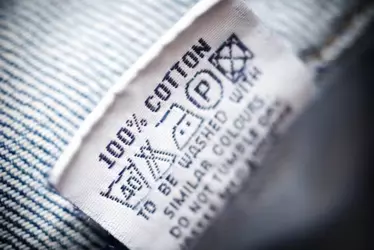Bespoke translations by yours truly. Articles 1 [A] and 2 [A] by Danisch, third one [A] is linked in the first one
Ideally a large stockpile.
The EU wants to ban cotton.
In the future, you only get underpants out of recycling polyester and old car tires. And only string thongs to cut down on material use.
Well spotted.
Well, it's just like with drinking straws. Before, we had good drinking straws made of plastic, in paper wrappers. In order to save the planet, we now have drinking straws made of paper, but those come in plastic wrappers, so they don't become soft.
Suggestion: Add a pair of handles to the cotton underpants. If someone asks, you can say it's a shopping bag. And if nobody asks, you've got a pair of suspenders.
The fashion industry is undergoing a transformation. While Europe is striving for a circular economy, it becomes clear that cotton does not fulfill the standards of the future. The production of cotton uses a hefty amount of resources and harms the environment.
"Fashion United" reports that around 10,000 liters [2,641 gallons] of water and one liter [1 quart] of chemicals are required for the production of one kilogram [2.2 lbs] of cotton. These chemicals jeopardize a sustainable use of the acreage that only regenerates slowly. Additionally, cotton does not fulfill the European mandates for the year 2030. By then, 50 percent of materials must be recycleable and 25 percent must be completely circulation-compatible. But cotton fiber is too small and too weak in order to be completely circular.

In the EU, a prohibition of cotton may be coming.
The European Union has set the goal of getting all materials into a complete circulation by 2050. This increases the pressure on the fashion industry. Strong guidelines such as the Corporate Sustainability Due Diligence Directive (CSDDD) and the Corporate Reporting Directive (CSRD) are forcing the companies' hand, but let the question open whether these measures are sufficient. Without concrete measures, the efforts remain fractured and inefficient.
A prohibition of cotton could be necessary in the long term. There are already promising alternatives like innovative textile fibers and advanced recycling technologies. The ecological and social damages of cotton have been unambiguously proven in the meantime. But moving over to a circular economy requires determined action and a clear strategy.
People, go buy yourselves underpants!
Ideally a large stockpile.
The EU wants to ban cotton.
In the future, you only get underpants out of recycling polyester and old car tires. And only string thongs to cut down on material use.
Plastic underpants
Well spotted.
Cotton ban
Hello Hadmut!
Completely normal EU insanity: Just recently, in retail stores, the plastic bags had to be replaced by reusable cotton shopping bags in order to save the planet - and soon, cotton clothes will have to be replaced by plastic clothes, also in order to save the planet.
Kind regards,
Well, it's just like with drinking straws. Before, we had good drinking straws made of plastic, in paper wrappers. In order to save the planet, we now have drinking straws made of paper, but those come in plastic wrappers, so they don't become soft.
Suggestion: Add a pair of handles to the cotton underpants. If someone asks, you can say it's a shopping bag. And if nobody asks, you've got a pair of suspenders.
New rules in the EU: Classic cotton could become prohibited soon
The fashion industry is undergoing a transformation. While Europe is striving for a circular economy, it becomes clear that cotton does not fulfill the standards of the future. The production of cotton uses a hefty amount of resources and harms the environment.
"Fashion United" reports that around 10,000 liters [2,641 gallons] of water and one liter [1 quart] of chemicals are required for the production of one kilogram [2.2 lbs] of cotton. These chemicals jeopardize a sustainable use of the acreage that only regenerates slowly. Additionally, cotton does not fulfill the European mandates for the year 2030. By then, 50 percent of materials must be recycleable and 25 percent must be completely circulation-compatible. But cotton fiber is too small and too weak in order to be completely circular.

In the EU, a prohibition of cotton may be coming.
The European Union has set the goal of getting all materials into a complete circulation by 2050. This increases the pressure on the fashion industry. Strong guidelines such as the Corporate Sustainability Due Diligence Directive (CSDDD) and the Corporate Reporting Directive (CSRD) are forcing the companies' hand, but let the question open whether these measures are sufficient. Without concrete measures, the efforts remain fractured and inefficient.
A prohibition of cotton could be necessary in the long term. There are already promising alternatives like innovative textile fibers and advanced recycling technologies. The ecological and social damages of cotton have been unambiguously proven in the meantime. But moving over to a circular economy requires determined action and a clear strategy.
